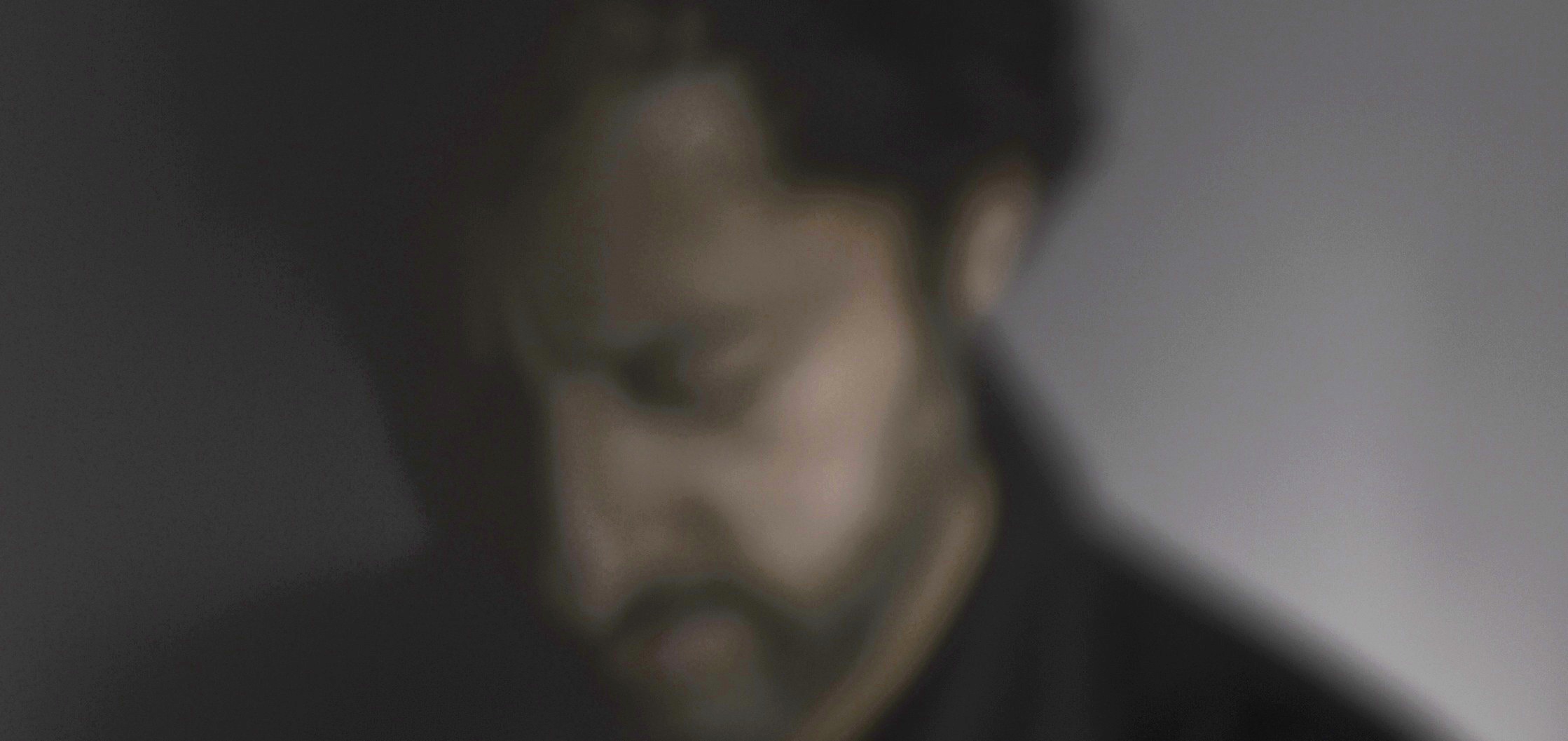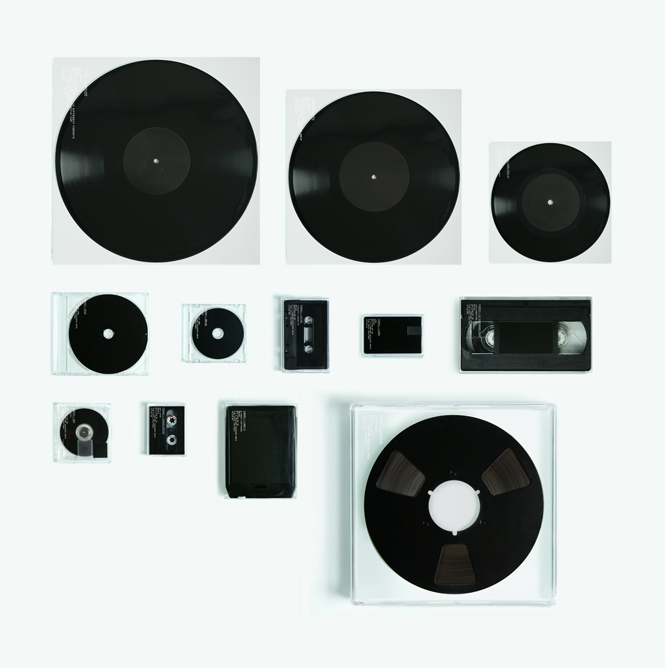Q&A: Trevor Jackson
After 14 years, the electronic-music iconoclast releases the conceptually ambitious 'Format.'

Q&A: Trevor Jackson
After 14 years, the electronic-music iconoclast releases the conceptually ambitious 'Format.'

Trevor Jackson’s last album of original work, produced under his Playgroup moniker, was released to mixed reviews: Popmatters loved its post-genre oddball eclecticism, for instance, while Pitchfork…well, the site gave Playgroup a score of 4.2. That LP was released in the early days of this millennium (several generations of clubbers ago, in other words) and there’s been nary a peep of Jackson-produced material since then. Not that he hasn’t been busy. He was the man behind the Output label, for instance, which—between 1996 until its final record, 2007’s tellingly titled I Hate Music—helped to define the era’s leftfield electronic-music sensibility by releasing music from the likes of Black Strobe, Fridge, LCD Soundsystem, MU, Colder and many, many others. And before, during and after Playgroup and Output, Jackson’s had a successful career as a designer, creative director, and related artistic endeavors.
That doesn’t really account for why it’s been so long since Jackson’s come up with a new record. But considering the outspoken bluster that the Londoner has employed over the years—he tends to punctuate interviews with statements like “I was like ‘fuck that, that’s just lazy’,” referring to mainstream record-sleeve design—the real reason for the lack of releases is a bit surprising: “I might have bravado, but I’ve never had confidence,” he explains (more on that below). But the Jackson drought, 14 years long, is over—in February, the Vinyl Factory released Format, a collection of beautiful, sometimes stark tracks, many tinged with an EBM/proto-house feel, that had been for years gathering digital dust on the artist’s hard drive. But Format was much more than that: After first appearing in the context of a gallery exhibition, the album was then put out as twelve limited-edition tracks, individually released as single cuts on various (sometimes archaic) formats, including seven-, ten- and 12-inch vinyl, CD, mini CD, cassette, MiniDisc, DAT, VHS, USB, eight-track and reel-to-reel. Much more than a gimmick, the concept was a statement dealing with the physicality of music and how listeners interact with it—but now, Format; has gone mass-market via a full-on release as CD and download, with a triple-vinyl release coming out in early June. XLR8R recently had the pleasure of catching up with Jackson, and here are the results of that conversation.

Is it true that the music for Format was basically music you just had sitting around?
I had like 150 tracks, and some of it dates back to when I stopped doing the hip-hop stuff with the Underdog and had started to come up with ideas for Playgroup—so that would date back to the late ’90s. Some of the tracks actually started as demos for the Playgroup album. Then, when I started doing Output, I stopped making music because I was just too busy, but when I closed the label, I started making music again, just for fun. I had no intention of doing anything with it because I was so disheartened about the whole music industry, as well as my place in music.
You’ve been quoted as saying that working with people like Four Tet, Maurice Fulton and James Murphy made you a bit insecure about releasing your own music—is that for real?
Yeah, totally! To be honest, part of the reason that I started running a label was because I was avoiding making music, apart from the Playgroup stuff. My place in music is an odd one. I certainly consume a hell lot of music; I do a fortnightly radio show on NTS, and I play 95 percent new music. I buy new music all the time, and the more I buy, the more amazing stuff I hear–and the more insecure it makes me. It genuinely does get to a point where I question the importance and relevance of anything I do. I mean, I might have bravado, but I’ve never had confidence. Getting back to your question—yes, when I was working with Maurice and James and Kieran, it did make me feel insecure about my own music. I never felt my music was as good as theirs. And also, because I had stopped making music…it’s weird. Making music is like swimming or driving a car—when you stop doing it, you lose confidence in it. I’m very proud of my design work—I’ll look at some of it and go, fuck me, that’s great—but with music, it just doesn’t go that way.

So, disregarding the theoretical underpinnings of Format for the time being, why put out music now?
Well, no one had really heard it, but I played some of it to a couple of people who I trusted, and they encouraged me. I needed their encouragement.
Did you release the music as is, or did you work on the tracks further?
They’ve all evolved. None of them are as they were in 1998 or whenever. Some of the tracks, I’d played around with some of them for a decade—but after you hear a track a thousand times over ten years, you lose perspective. That’s why I needed that encouragement. They were like, “This is really fucking good—you should put it out!” And I was like, “Really?”
And how did that become Format? Releasing music is one thing—but this seems like an insanely ambitious way to do it.
I had met up with one of the guys from Vinyl Factory, Sean [Bidder], when I was doing a project last year called Yesterday, Today, Tomorrow, which was microscopic photographs of record grooves. We started talking about other ideas, and that’s when I came up with the Format idea. And he said, “That’s a good idea!” Again, it was only through other people’s enthusiasm that I decided to put anything out. It wasn’t a plan at all.
I guess since Output’s final release was a compilation titled I Hate Music, you really didn’t plan on releasing any more tunes!
That was a bit tongue in cheek—but I really fucking did hate music! I hated all the people I was working with; I hated the industry; I hated my own music. I hated it all! If I was going to make music, it had to be for the fun of it, which is really why I made most of the tracks on Format. Most of it was actually made in really low points in my life, and was maybe some of the best music I’ve ever made.
The “tortured artist” cliché does have some truth behind it.
It does. I’ve never been into drugs and I’ve never been into booze, and doing music for fun has been the thing that’s helped pull me through. Still, it’s weird for me—I’m proud of the music, but it’s very strange for to sit down and listen to it.
Let’s get back to the conceptual basis of this record. What exactly was it about releasing in all these different versions, some of them quite archaic, that appealed to you?
To be honest, that aspect of this appealed to me as much as the music. The thing was, I hadn’t released an album of my own music in 14 years. That was pre-iTunes; it was pre-YouTube; it was a different generation entirely. I mean, I have a two-terabyte drive here just full of new music—and things get lost really easily. I realized that if I’m going to put something out now, I’ve got to do something special with it. I had to release an album that was more than an album. Even if the music itself wasn’t conceptual, I had to release it in a conceptual way. The physicality of music is immensely important to me.
“The discovery, the purchase, the playing—the journey—is fundamental in the enjoyment of music.”
The “how” of music is released, how that physicality relates to the listening experience, is something you’ve always been interested in, right?
Without a doubt, even in the early Output days, when I was messing with different materials and different surfaces for sleeves or whatever. For me, it’s integral—I do adore the ritual of playing things. Not just the vinyl aspect, but everything. For me, the whole process of hearing a track for the first time, going out to find the physical product, opening it up, taking it out, putting it into the machine and pressing play…that ritual is a hugely important aspect of the culture of music. The discovery, the purchase, the playing—the journey—is fundamental in the enjoyment of music. I find it very hard to think of music as purely a listening experience. I don’t want it to be just a situation where you hit play on your iPhone and that’s it, you know? Actually, you’re not even pressing play, you’re pressing a play icon. I need more than that when I need music. So that’s one aspect of the conceptual basis; there are others.
I suspect you would have gone into this project without having put a lot of thought into it.
Too much thought!

Just on a purely practical level, was it hard to get manufacturers for the various formats?
It was a nightmare. Vinyl, no problem. CD…not too bad, but actually getting a jewel case for a mini CD nowadays is pretty impossible. But then again, I like things to be difficult.
I imagine by the time you get to, say, making MiniDiscs, it gets very difficult.
I did them by hand. I had to actually go out and buy everything. The MiniDisc that we used is a very rare Maxell MiniDisc—black in a clear case. I did manage to find a batch in Japan, and I just recorded them myself. I recorded the 8-tracks myself, too. It was a real labor of love.
That adds another layer to the physicality aspect, I’m guessing.
It was really important to me that a lot of it was done by myself, as maniacal as that is. But I think it’s important to put personal effort to it. If you know that it was done by hand—and not by an intern, but by myself—that adds something to it, I think.
Now the album is coming out as a traditional, widely available physical release as vinyl and CD, as well as via download. With all the conceptual thought behind it, how do you feel about it being released this way?
I actually didn’t really want to happen.
“I don’t have an ego, and I don’t need millions of people to hear my music.”
Because it detracts from the concept?
Totally. But that was part of the agreement. I mean, I don’t have an ego, and I don’t need millions of people to hear my music. I would have loved the idea that only the 25 people in the world who had that MiniDisc would be the only 25 people in the world to have that track. But financially, it simply wouldn’t have worked out, and I respect Vinyl Factory’s decision. And they still look beautiful as a product. But, you know, a big part of the whole concept was about controlling how other people listen to your music. I’ll admit that I am a control freak—and I couldn’t really think of a more controlling way to release music than on these specific formats, which people might not even have the machines to play them on.
You don’t like to make things easy for people.
Not at all. I’m anti-convenience. I don’t like lazy culture. The more effort you have to make to do something, the more it means to you. And that’s probably the most important message of this whole project. For me, that’s really what it’s about.

